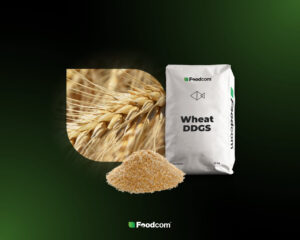- Argentina could achieve the second highest wheat harvest in history – 20.5 million tonnes in the 2025/26 season.
- Extending the export tax reduction to 9.5% could further increase production and exports.
- A 10% depreciation of the peso improves the profitability of foreign sales for exporters.
- Farmers are calling for long-term stability and lower costs to realise the sector’s full potential.
Production could approach historic record
The Argentine Grain Exchange in Buenos Aires estimates that the 2025/26 wheat harvest will reach 20.5 million tonnes – the second highest on record, following the record of 22.4 million tonnes in 2021/22. However, these forecasts could increase if the government extends the temporary export tax cut from 12% to 9.5%, effective until the end of June 2025.
Economist Ramiro Costa points out that current projections assume a return of the rate to 12% after June. An extension of the concessions could therefore directly translate into higher production and more exports. Currently, the agricultural sector is pushing the government to maintain the more favourable fiscal conditions, but the administration of President Javier Mili has so far not confirmed this intention.
Currency exchange rate and profitability of exports
At the same time, the government has abandoned the mechanism to control the exchange rate of the peso (Argentina’s official currency), causing it to depreciate by around 10%. This means that exporters receive more pesos for every dollar of foreign revenue, which could provide an additional boost to exports.
Nevertheless, representatives of the agricultural sector point out that high production costs and tax burdens remain a challenge. In their view, long-term regulatory stability and support are needed to allow the sector to realise its full potential.
Changes in Argentina’s economic policies have wider implications, affecting global grain supplies and could shape prices on international markets. Any decision on wheat exports will therefore be important locally, but also globally.

![Argentina gears up for record wheat harvest – tax decision could determine outcome [World News] Argentina gears up for record wheat harvest – tax decision could determine outcome [World News]](https://foodcom.pl/wp-content/uploads/2023/09/Foodcom_World_News_Food-1520x760.jpg)


![Indonesian corruption scandal involving judges and palm oil companies [World News] Indonesian corruption scandal involving judges and palm oil companies [World News]](https://foodcom.pl/wp-content/uploads/2025/03/News-world_22-6-600x300.png)
![Suspension of retaliatory tariffs by the EU – a new chapter in trade relations with the US [World News] Suspension of retaliatory tariffs by the EU – a new chapter in trade relations with the US [World News]](https://foodcom.pl/wp-content/uploads/2025/03/News-world_22-7-600x300.png)
![Grain exports weaken, corn imports accelerate [World News] Grain exports weaken, corn imports accelerate [World News]](https://foodcom.pl/wp-content/uploads/2025/03/News-world_22-1-600x300.png)

